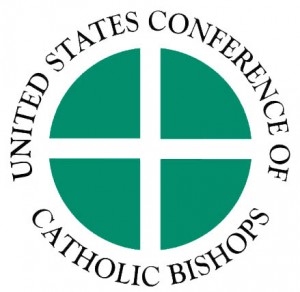 The bishops of this country have just concluded their traditional fall meeting in Baltimore and have spent time on issues important to them and their people: help to those suffering from Typhoon Haiyan; an update on the situation in Haiti; matters of worship and teaching; service to the poor; and comprehensive immigration reform. Among those priorities is the protection of religious freedom, especially as threatened by the HHS mandate.
The bishops of this country have just concluded their traditional fall meeting in Baltimore and have spent time on issues important to them and their people: help to those suffering from Typhoon Haiyan; an update on the situation in Haiti; matters of worship and teaching; service to the poor; and comprehensive immigration reform. Among those priorities is the protection of religious freedom, especially as threatened by the HHS mandate.
Pope Francis has reminded us that “In the context of society, there is only one thing which the Church quite clearly demands: the freedom to proclaim the Gospel in its entirety, even when it runs counter to the world, even when it goes against the tide.”
We stand together as pastors charged with proclaiming the Gospel in its entirety. That Gospel calls us to feed the poor, heal the sick, and educate the young, and in so doing witness to our faith in its fullness. Our great ministries of service and our clergy, religious sisters and brothers, and lay faithful, especially those involved in Church apostolates, strive to answer this call every day, and the Constitution and the law protect our freedom to do so.
Yet with its coercive HHS mandate, the government is refusing to uphold its obligation to respect the rights of religious believers. Beginning in March 2012, in United for Religious Freedom, we identified three basic problems with the HHS mandate: it establishes a false architecture of religious liberty that excludes our ministries and so reduces freedom of religion to freedom of worship; it compels our ministries to participate in providing employees with abortifacient drugs and devices, sterilization, and contraception, which violates our deeply-held beliefs; and it compels our faithful people in business to act against our teachings, failing to provide them any exemption at all.
Despite our repeated efforts to work and dialogue toward a solution, those problems remain. Not only does the mandate undermine our ministries’ ability to witness to our faith, which is their core mission, but the penalties it imposes also lay a great burden on those ministries, threatening their very ability to survive and to serve the many who rely on their care.
The current impasse is all the more frustrating because the Catholic Church has long been a leading provider of, and advocate for, accessible, life-affirming health care. We would have preferred to spend these recent past years working toward this shared goal instead of resisting this intrusion into our religious liberty. We have been forced to devote time and resources to a conflict we did not start nor seek.
As the government’s implementation of the mandate against us approaches, we bishops stand united in our resolve to resist this heavy burden and protect our religious freedom. Even as each bishop struggles to address the mandate, together we are striving to develop alternate avenues of response to this difficult situation. We seek to answer the Gospel call to serve our neighbors, meet our obligation to provide our people with just health insurance, protect our religious freedom, and not be coerced to violate our consciences. We remain grateful for the unity we share in this endeavor with Americans of all other faiths, and even with those of no faith at all. It is our hope that our ministries and lay faithful will be able to continue providing insurance in a manner consistent with the faith of our Church. We will continue our efforts in Congress and especially with the promising initiatives in the courts to protect the religious freedom that ensures our ability to fulfill the Gospel by serving the common good.
This resolve is particularly providential on this feast of the patroness of immigrants, St. Frances Xavier Cabrini. She was a brave woman who brought the full vigor of her deep religious faith to the service of the sick, the poor, children, the elderly, and the immigrant. We count on her intercession, as united we obey the command of Jesus to serve the least of our brothers and sisters.